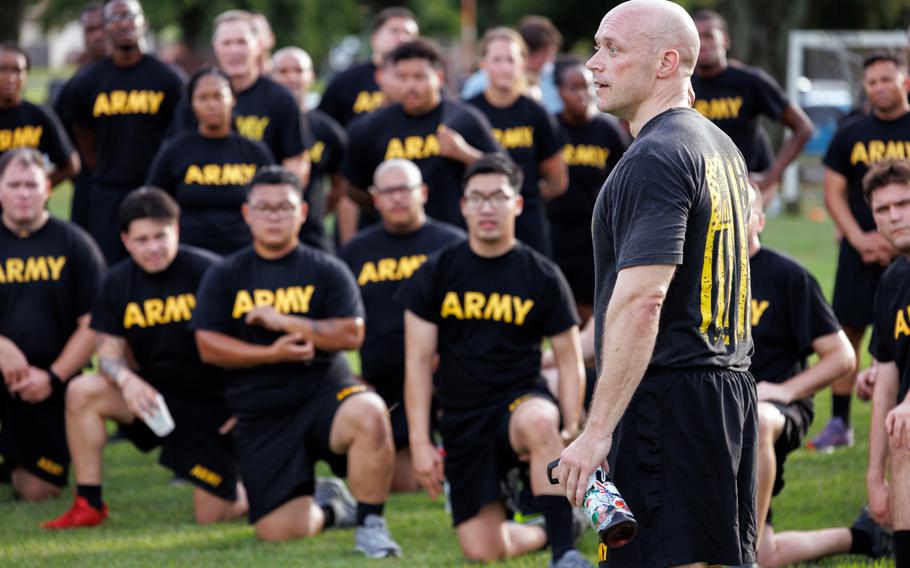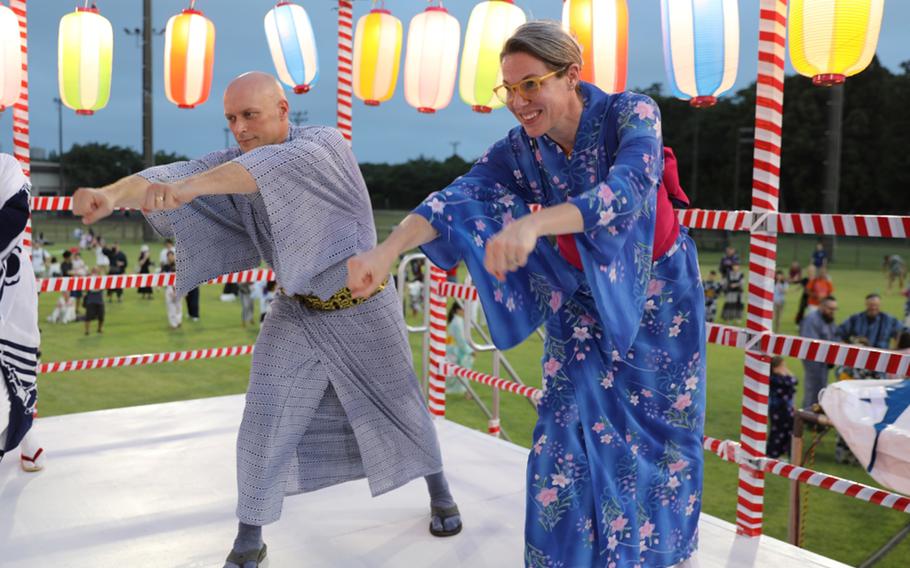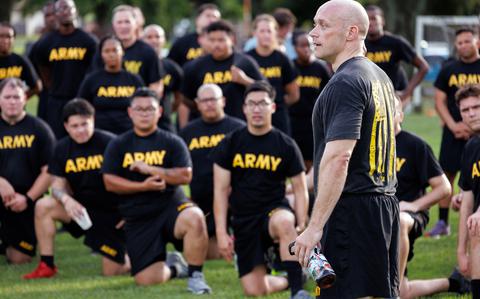
U.S. Army Garrison Japan commander Col. Erik Davis speaks to soldiers during the 9/11 Workout to Remember event on Yano Field at Camp Zama, Japan, Sept. 9, 2025. (Kei Sasaki/U.S. Army)
TOKYO — The newest leader of U.S. Army Garrison Japan brings a healthy record of command experience, along with degrees from Michigan State and the London School of Economics.
And for anyone interested in his thinking on data analysis, technology and leadership in today’s Army, just check his blog, Downrange Data, launched on Substack in June 2024.
Col. Erik Davis, whose Army experience is rooted in Special Forces, assumed command at Camp Zama from Col. Marcus Hunter on July 17. Davis brings more than 20 years of operational experience, including tours in Iraq and Afghanistan with 1st Special Forces Group.
He also served as chief of operations for the Special Operations Joint Task Force — Operation Inherent Resolve, the campaign against ISIS in Iraq and Syria, before leading 1st Battalion, 1st Special Forces Group, on Okinawa, according to his Army biography. Along the way, he completed Airborne, Ranger and Military Freefall schools and earned the Combat Infantryman’s Badge.

U.S. Army Garrison Japan commander Col. Erik Davis dances with his wife during the annual Bon Odori festival at Camp Zama, near Tokyo, Aug. 2, 2025. (Noriko Kudo/U.S. Army)
Commissioned in May 2003 through the ROTC program at Michigan State University, Davis went on to earn master’s degrees in terrorism studies at King’s College in London and in international diplomacy at the London School of Economics, according to his LinkedIn profile.
In his blog, Davis is an intellectual warrior.
He applies data analysis to the Army’s fitness tests, writes short fiction about a tanker coping with AI and compares national defense to the insurance industry.
“Defense is not a revenue generator,” he wrote in one post. “Even if you add in the jobs in the military industrial complex and the value of foreign military equipment sales, the costs of defense don’t come close to breaking even. Defense, like insurance, sits over in the expense column. We don’t buy insurance to make a profit.”
A persistent theme in his writing is that data and technology enhance Army readiness. He also weighs in on the intersection of command with data literacy.
In “Whatcha Gonna Do, PL?,” published early this year on the Center for Junior Officers website, Davis wrote that rank should serve as a tool for collaboration, not a barrier to innovation. He encouraged junior leaders to embrace creativity and use fresh perspectives to solve complex problems.
“It’s important to remember, your rank doesn’t give you good ideas,” he wrote. “It gives you the responsibility to weigh different ideas and decide which one is the best.”
U.S. Army Garrison Japan did not respond to questions submitted for Davis by email on Sept. 16 or to a follow up message on Sept. 24.
A garrison commander, Davis is responsible for 15 installations, ports and other facilities across the country, including Camp Zama, the headquarters of U.S. Army Japan, and Sagami General Depot.
The garrison provides operations support and community services for soldiers, civilians and family members stationed throughout Japan. Its responsibilities range from housing and infrastructure to family programs and bilateral coordination with the Japan Ground Self-Defense Force.


AloJapan.com